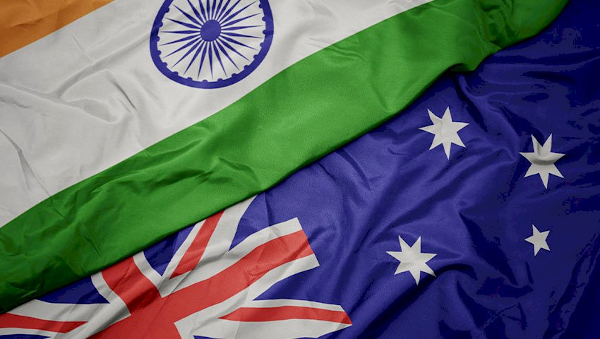In a diplomatic first, India and Australia are expected to sign an agreement for reciprocal access to military logistics facilities and other pacts aimed at developing alternative supply chains when the two sides hold their first virtual summit on June 4.
The summit between Prime Minister Narendra Modi and his Australian counterpart Scott Morrison, yet to be formally announced, will be held against the backdrop of heightened friction with China for both countries.
It will be Modi’s first virtual bilateral summit and the first time several bilateral agreements will be concluded virtually since the Covid-19 outbreak, two people familiar with the development said.
The Mutual Logistics Support Agreement (MLSA), finalised at the “2+2” or combined dialogue of the foreign and defence secretaries in New Delhi last December, was to be signed during Morrison’s visit in January, which was called off due to the Australian bushfires.
With joint exercises and defence cooperation between India and Australia on the upswing, MLSA will remove the need for protracted negotiations for reciprocal access to logistics support every time a manoeuvre is organised, the people cited above said on condition of anonymity. It will also improve interoperability between the armed forces of the two sides.
Between 2016 and 2019, India has signed similar logistics exchange agreements with the US, Singapore, France and South Korea.
While the conclusion of MLSA is significant as the two sides have been negotiating it for some time, there is greater buzz about agreements to be signed in science and technology, research, pharmaceuticals and medical equipment, and rare earth metals and critical minerals which are aimed at creating supply chains in strategic areas that are less dependent on China, the people said.
Even before the Covid-19 crisis, the two sides had been exploring the possibility of cooperating on rare earth metals such as lithium, neodymium and dysprosium, of which Australia has the world’s sixth largest reserves. More than 90% of India’s imports of rare earth metals, worth $3.4 million in 2016, come from China.
The two sides will also look at enhancing their partnership in education as part of measures to shift the focus of Australian universities on the Chinese market, the people said. Prior to the Covid-19 crisis, Australia was home to some 90,000 Indian students.
“We’re also looking at agreements in the maritime sphere and water resources and negotiations are underway on some other issues. Research and collaboration on Covid-19 will also figure in the discussions,” said one of the people cited above.
Morrison has described India as “a natural partner for Australia”, and Australian high commissioner Barry O’Farrell has said the two sides have had regular discussions about how they can shape the post-Covid world order. In this context, O’Farrell said Australia supports India’s call for reforming the World Health Organization (WHO) after overcoming the Covid-19 crisis.
On Tuesday, defence minister Rajnath Singh tweeted that he had spoken on telephone with his Australian counterpart Linda Reynolds and discussed the response of both sides to the Covid-19 pandemic and possible areas of cooperation.
“India-Australia strategic partnership provides a good base for both the countries to work together in dealing with the post COVID challenges. We are committed to take forward the initiatives of bilateral defence and security cooperation under the Strategic Partnership framework,” Singh added.
While tensions between India and China are at a high following the standoff between their border troops in Ladakh, Australia’s relations with China too took a hit after Canberra called for an independent investigation into the origins of the Covid-19 pandemic.
Nitin Pai, director of the Takshashila Institution, said it made “absolute economic sense” for India and Australia to reduce the risk of their exposure to China even if the two countries weren’t grappling with tensions with China and the Covid-19 crisis.
“It makes a lot of sense to find a diversity of suppliers on one hand, and to find a diversity of customers for products on the other,” he said, adding the existing geo-political risks, the pandemic and travel restrictions make it vital not to put all eggs in one basket and to build a diversity of economic partnerships.
Source: HT
Image Courtesy: Defence Connect
You may also like
-
IAF Aircraft Set Course For Exercise Eastern Bridge VII At Oman
-
India-us Working Together In Areas Like Critical Minerals, Supply Chains And Advanced Technologies: Shri Piyush Goyal
-
Defence Secretary to co-chair 5th India-Philippines Joint Defence Cooperation Committee meeting in Manila
-
2nd India-Japan Finance Dialogue held in Tokyo on 6th September, 2024
-
Prime Minister, Shri Narendra Modi welcomes Crown Prince of Abu Dhabi
